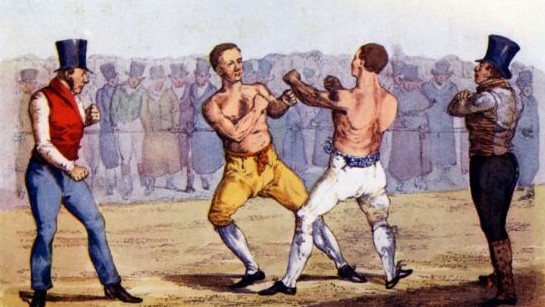The judge presiding over the long-running copyright litigation between Thomson Reuters and Ross Intelligence today issued a memorandum opinion explaining his April 10 issuance of an 11th-hour order postponing the scheduled trial to allow Ross to file an interlocutory appeal of the judge’s partial grant of summary judgment.
“Though I am still confident in my February 2025 summary-judgment opinion, the questions here are hard,” wrote U.S. Circuit Judge Stephanos Bibas, sitting by designation in the U.S. District Court in Delaware. “Interlocutory appellate review of two of them will resolve the case more efficiently. That is why I granted Ross’s motion for interlocutory appeal and stay pending appeal.”
Read the full text of today’s memorandum opinion.
The closely watched case involves significant issues that could have major implications for legal publishing and that could reshape how courts handle AI-related copyright disputes.
With the trial having been set to begin May 12, Judge Bibas on April 4 issued a brief order postponing the trial and allowing Ross to file an interlocutory appeal. In today’s opinion, Judge Bibas provides his reasoning for that April 4 order.
A David v. Goliath Battle
The case stems from allegations that Ross Intelligence, a now-shuttered AI-powered legal research startup, improperly used Thomson Reuters’ copyrighted Westlaw headnotes and Key Number system to train its competing legal research tool.
Thomson Reuters, the legal publishing giant behind Westlaw, claims Ross scraped millions of headnotes – brief summaries that identify key legal principles in court decisions – to build its own search platform.
As reported in my coverage of the April 10 order, Judge Bibas initially denied TR’s motion for summary judgment on fair use in 2024, ruling that the issue should be decided at trial. However, in a surprising reversal this February, the same judge issued a new summary judgment ruling that favored Thomson Reuters on both copyright originality and fair use grounds.
Two Questions Certified for Appeal
Judge Bibas has certified two critical questions for the 3rd U.S. Circuit Court of Appeals that go to the core of AI and copyright law:
- Are Westlaw’s editor-created headnotes and Key Number system sufficiently original to qualify for copyright protection? The answer could have profound implications for the legal publishing industry. Judge Bibas concluded that attorney editors exercise enough creativity when they choose which parts of judicial opinions to highlight and how to categorize them, meeting copyright law’s low bar for originality.
- Fair use. Even if the headnotes are copyrightable, did Ross’s use of them constitute fair use under copyright law? Judge Bibas found that Ross’s use was not “transformative” because both companies created legal research tools that “identify the important parts of a large body of law.” He concluded that Ross essentially created a “market substitute” for Westlaw rather than adding new meaning or purpose to the original work.
Judge Bibas explained his decision to grant the interlocutory appeal using the three-part test required under federal law. He found that both certified questions represent “controlling questions of law” where there are “substantial grounds for difference of opinion” and where immediate appeal would “materially advance the ultimate termination of the litigation.”
Notably, the judge acknowledged the difficulty of these questions, writing, “Our circuit has not yet spoken on this ‘novel and difficult question of first impression.'” He took note of the fact that even his own analysis evolved between his two summary judgment opinions, though he added that he maintains confidence in his most recent ruling.
Financial Pressures Favor Stay
Judge Bibas said his decision to stay the trial also reflected practical considerations about Ross’s financial situation.
He said that Ross “has struggled financially” and that enormous trial costs could “potentially impair its ability to finance a trial.” This created an exception to the usual rule that economic harm alone doesn’t justify a stay pending appeal, he said.
The judge found this potential harm to Ross outweighed any delay Thomson Reuters might suffer, especially since resolving the legal questions on appeal could avoid an unnecessary trial altogether.
What Happens Next
The case now moves to the 3rd U.S. Circuit Court of Appeals, which has discretion to accept or decline the certified questions. If accepted, the appellate court could modify the specific questions it chooses to address.
The timeline for appellate resolution remains uncertain, but interlocutory appeals typically move faster than regular appeals because they are designed to resolve cases more efficiently.
Both parties will likely brief their positions over the coming months, with oral arguments potentially scheduled for late 2025 or early 2026.
Implications for Legal Tech
The implications of this case could extend beyond just this lawsuit. As Judge Bibas noted in his order, “Given the quickly growing importance of AI, the public will benefit from having the Third Circuit weigh in promptly on AI’s copyright implications.”
The case is one of the first major court battles over whether AI companies can use copyrighted legal materials to train their systems. The outcome could establish important precedents regarding the boundaries of using training data to build competing products and the extent to which large legal publishers can use copyright law to protect their legal research tools.
Even though Judge Bibas granted the appeal, he made clear that he stands behind his February ruling. In his order, he reiterated his reasoning on both originality and fair use, suggesting confidence that the 3rd Circuit will uphold his analysis.
Even so, the very fact that the same judge reached opposite conclusions in two different summary judgment rulings illustrates the genuine difficulty of these questions. For now, we will have to wait and see how the 3rd Circuit decides.
 Robert Ambrogi Blog
Robert Ambrogi Blog